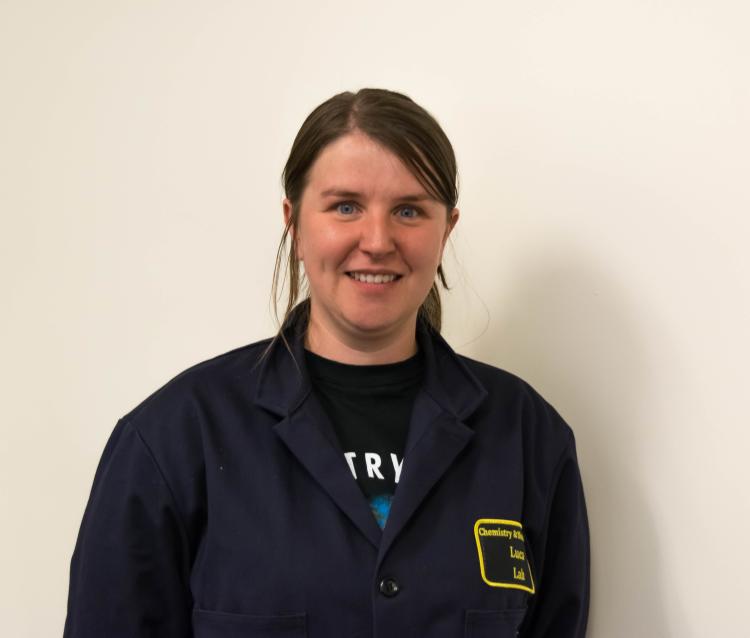Research could zap heavy metals out of drug production
Oana Luca, an assistant professor at CU Boulder, wins grant for her innovative work with cross-coupling research.
The process by which pharmaceutical drugs are created might soon be changing due to one University of Colorado Boulder professor.
Oana Luca, an assistant professor in the Chemistry and Biochemistry Department at CU Boulder, has been awarded an ignition grant from the ACS Green Chemistry Institute for her work attempting to make the manufacture of pharmaceutical drugs both quicker and cheaper by innovating an old chemical procedure for new means.
Luca's research examines cross-coupling reactions, a common chemical process that is critical to the production of many pharmaceutical drugs, ranging from hydroxyzine and captodiame (which treat anxiety), fenofibrate (to treat high cholesterol), diphenhydramine and meclizine (which treat motion sickness) to oxybenzone (used in sunscreen and cosmetics).

Oana Luca has been awarded an ignition grant from the ACS Green Chemistry Institute for her cross-coupling research. Photo by Cay Leytham-Powell.
The current cross-coupling method used in the industry, which Luca aims to improve, entails melding together two different chemical compounds with expensive, rare metals that can not only be invasive to the procedure, but often deteriorate before use, resulting in massive waste, expense and headache.
And it is precisely for this reason that Luca and her team, including Alyssia Lilio, a postdoctoral researcher, want to change the drug-making process, using a more streamlined approach that involves electricity instead.
"Our approach is so different from what anyone is doing anywhere," remarked Luca.
The grant, awarded by the American Chemical Society Green Chemistry Institute Pharmaceutical Roundtable, is a green-chemistry "ignition" grant that funds early, exploratory research in order to develop the ideas into larger-scale projects. In a sense, this is a preliminary step within something much bigger.
"We created the Ignition Grant Program to kick-start research for sustainable solutions to chemistry and engineering problems relevant to our industry," said Stefan Koenig, co-chair of the ACS Green Chemistry Institute Pharmaceutical Roundtable, in an interview for Chemical and Engineering News, a national publication of the American Chemical Society.
"Considering the number of high-caliber applications we received, it's clear this program is addressing a real funding need."
Cross-coupling reactions are, currently, "a + b" chemical reactions, with the " + " being a rare metal that requires expensive processes to keep it from spoiling. This means that there is a need in the pharmaceutical industry for something better—something that eliminates this waste altogether.
Previous efforts to improve cross-coupling reactions have yielded three different Nobel Prizes in Chemistry, with the most recent being in 2010 for a palladium (a hard metal) catalyst (the " + ").
Luca's research takes the reaction in a different direction, returning to fundamental chemistry. Rather than use metals to trigger the melding of the "a" and "b," she examines the possibility of electrical forces (via electrodes) as a fusing agent. While there are still many challenges to the process, Luca admits, there is also a lot of opportunity, making it a "high risk, high reward" endeavor—with the possibility of altering the capabilities of chemistry itself.
"It could be completely different chemistry," said Luca. "It's opening the door to many different types of chemistries that nobody has even thought about."

